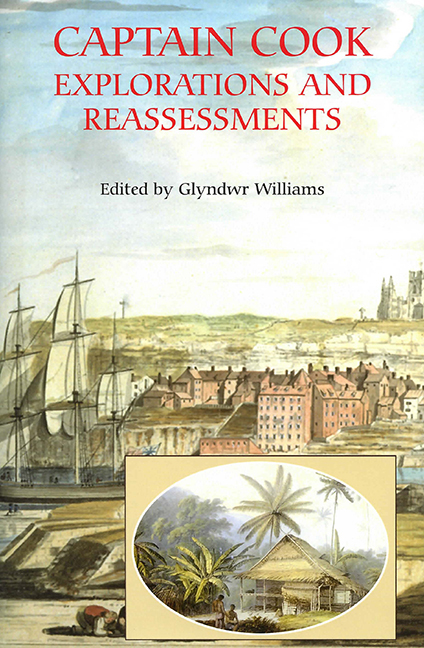Book contents
- Frontmatter
- Contents
- List of illustrations
- Contributors
- Acknowledgements
- Abbreviations
- Introduction
- Part I The Years in England
- Part II The Pacific Voyages
- Part III Captain Cook and his Contemporaries
- 8 A comparison of the charts produced during the Pacific voyages of Louis-Antoine de Bougainville and James Cook
- 9 Successors and rivals to Cook: the French and the Spaniards
- 10 Russian responses to the voyages of Captain Cook
- Part IV The Legacy of Captain Cook
- Index
9 - Successors and rivals to Cook: the French and the Spaniards
from Part III - Captain Cook and his Contemporaries
Published online by Cambridge University Press: 25 October 2017
- Frontmatter
- Contents
- List of illustrations
- Contributors
- Acknowledgements
- Abbreviations
- Introduction
- Part I The Years in England
- Part II The Pacific Voyages
- Part III Captain Cook and his Contemporaries
- 8 A comparison of the charts produced during the Pacific voyages of Louis-Antoine de Bougainville and James Cook
- 9 Successors and rivals to Cook: the French and the Spaniards
- 10 Russian responses to the voyages of Captain Cook
- Part IV The Legacy of Captain Cook
- Index
Summary
The discovery of the Pacific not only determined its entry into the consciousness of Europe, but also confirmed that its destiny was to reflect the shifting balance of power in the struggle for continental hegemony. At the same time, the ebb and flow of European interest in the vast and seemingly empty ‘great south sea’ reflected the navigational uncertainties and huge distances involved in approaching and sailing through it, as well as the existence of colonial settlements and trading opportunities in more easily accessible regions – North America, the Caribbean, Africa, and even India. Historians can speak in terms of James Cook's ‘opening of the Pacific’ as late as the eighteenth century only because of its essential remoteness from the centre of the action, which always remained Europe itself.
Early activity in the Pacific in the sixteenth century reflected the domination of Spain and her American empire. In the seventeenth century, independent Holland emerged as a sea power, and the renewed rivalry of England and France became more evident. Then, in the eighteenth century wealth and imperial ambition, advances in shipbuilding and navigation, and the age of the Enlightenment made Europe ever more ready to explore and exploit overseas lands. Anglo–French rivalry reached new heights, and Spain under Carlos III witnessed a renaissance in her political and cultural life, and a determination to preserve her imperial legacy.
Spain's early confrontation with Portugal was defused by a papal division of the world, and her assumption of sovereignty in the Pacific led to a series of voyages to its western reaches. Here she concentrated on the occupation of the Philippines and, following their conquest in 1564–5, on the establishment of a trade route between Acapulco and Manila, which until 1815 was the world's most sustained maritime enterprise. Once Spanish power had established itself in the Philippines, the cycle of exploration shifted south of the Equator. Its focus was one of the great geographical assumptions of the time – the existence of Terra Australis – but Spain had to be content with discoveries in the Marquesas and Melanesia. Coincident with these southern initiatives were voyages of exploration and commerce along the American littoral, north and south of Lima and Acapulco respectively, where Spanish ships fought an ongoing battle with pirates and interlopers.
- Type
- Chapter
- Information
- Captain CookExplorations and Reassessments, pp. 161 - 178Publisher: Boydell & BrewerPrint publication year: 2004

